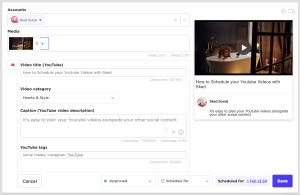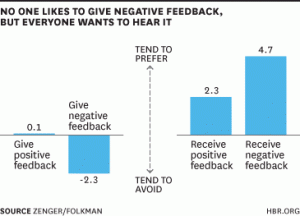From physical workspace (remote vs. open office plans) to shared values and goals, your workplace is probably comprised of some competing ideologies. Many companies look to innovation, transparency, and collaboration to drive company growth. One tenet that often is over-looked is the importance of knowledge sharing.
Knowledge sharing might seem like a natural phenomenon within any organization, but it tends to exist in somewhat of a gray area. Organizations that value knowledge sharing know that it is crucial to provide a method for unstructured, undocumented knowledge to be shared across all levels – from leadership to the most junior of staff.
Skeptical? Here’s five reasons knowledge sharing is great for your company:
1. Promotes Employee Input
Facilitating clean communication throughout a company can be difficult. Do lower-level employees feel empowered to offer suggestions or share information? Is the management team receptive to new ideas? Is there a mechanism for providing valuable feedback from both ends of the spectrum?
A recent article in Streetfight Magazine makes the argument that “companies with culture data outperform those without it.” Gathering that data means promoting an atmosphere of open knowledge sharing and specific feedback provision. The article states, “As you get bigger, there are more people you need to reach… culture boils down to relationships and how people interact.” Companies trying to build a healthy culture need to be able to collect shared knowledge and use that data to create a strong culture strategy.
2. Builds Accountability
Anyone who has been on a team – sports, business, even family – knows the importance of accountability. In a professional setting, being accountable to both oneself and the team is paramount. But anyone who has been on a team also knows that accountability starts at the top.
Leadership that believes in the benefits of knowledge sharing will be proactive in providing answers to employee questions, sharing best practices and quick to catch on to learning opportunities. This kind of buy-in at the top puts positive pressure on the rest of the organization to be accountable to themselves and each other. If the lines of communication and sharing are open at the top, that attitude will trickle down.
3. Helps Retain Top Talent
One of the most frustrating things to an employee is being in a situation where a lack of information is a tangible hurdle to high performance. Companies thrive when performance is valued, and one of the keys to building that value is to make sure that employees are put in a position to succeed. Sharing knowledge throughout an organization means fewer opportunities to blame on a lack of information or learning resources and a greater opportunity to reward – and retain – the high performers.
4. Fosters Creativity
“Creativity” is an elusive concept in the professional world. Every organization wants it, yet few take the necessary steps to allow that sort of thinking to thrive. While it’s true there are different approaches to providing the intellectual and physical space for creativity, sharing resources and knowledge is a surefire way to disperse ideas and unique approaches to problem solving. Providing a forum for seeking input or soliciting answers and feedback is asign that not only is creative thinking valued, but it is an important facet of the company’s culture of employee engagement.
5. Eases Growing Pains
Company growth can be difficult for several reasons. Scaling operations, establishing clear chains of command and managing new personnel can be daunting. What key pieces of information do new employees need to know? Who is available to answer questions or offer insight into operational practices? How can leadership ensure that critical directives are being met in an efficient manner?
Sharing knowledge helps alleviate these problems. Rather than having existing employees hoard valuable knowledge or leave new hires feeling directionless, an organization that has actively engaged in knowledge sharing is several steps ahead of the game. Providing the infrastructure to share undocumented knowledge can ease transition issues and allow employees to feel empowered.
Business & Finance Articles on Business 2 Community(62)
Report Post



